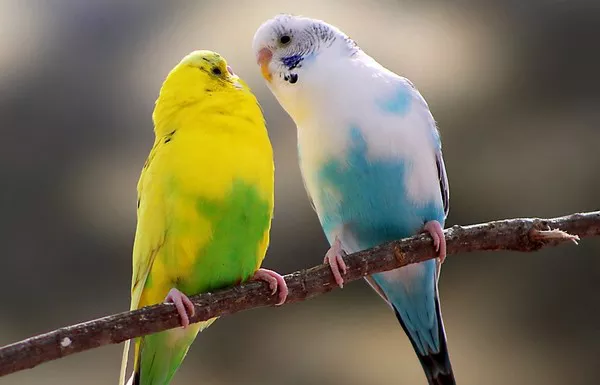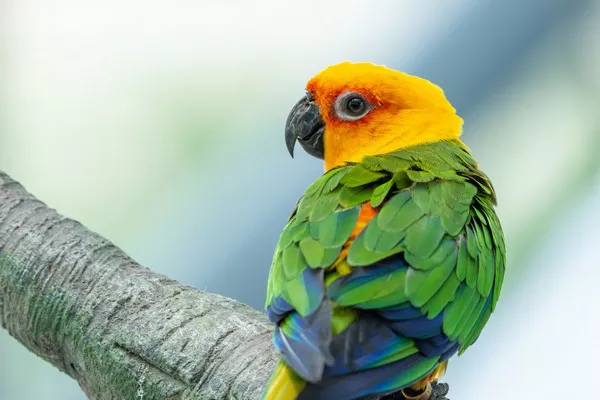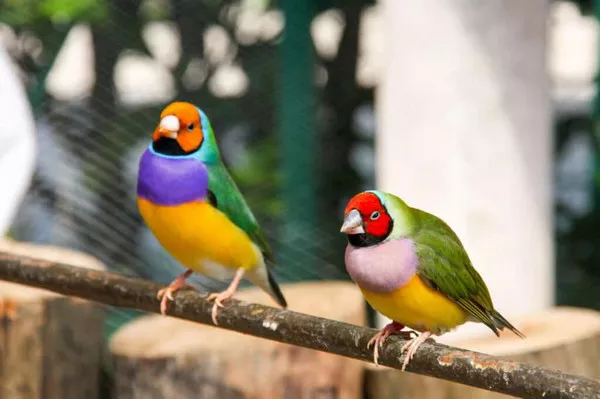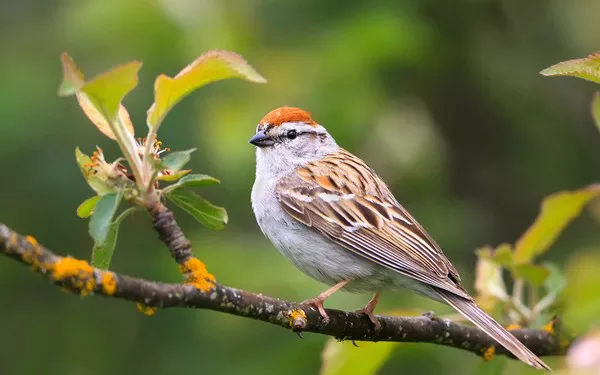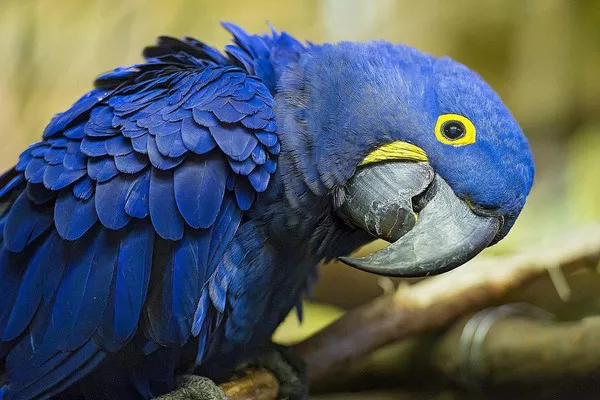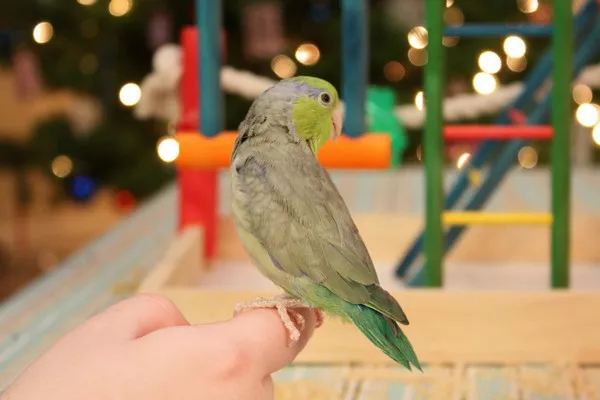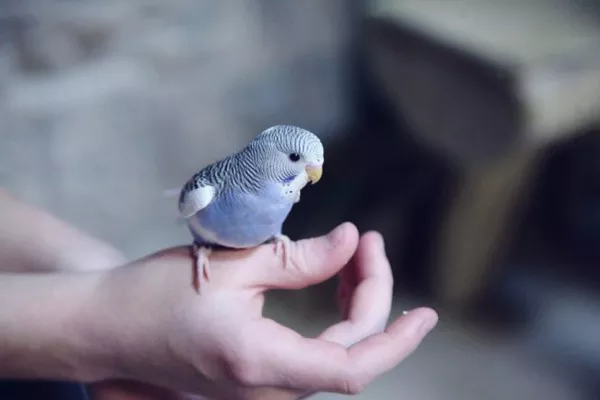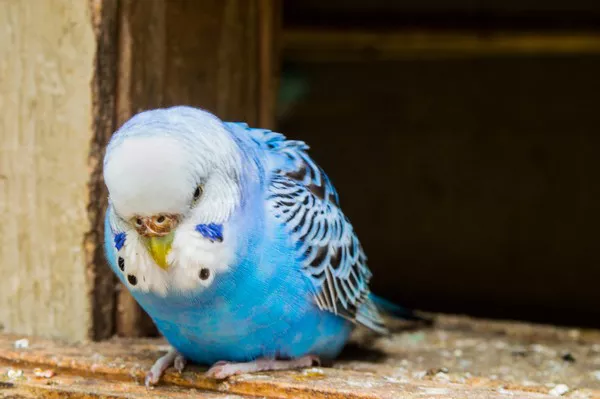Ah, the sun conure. With its vibrant colors that could make a sunset blush, this feathered companion has captured the hearts of many bird lovers. These playful parrots are known not only for their beauty but also for their lively personalities and penchant for mischief. But when it comes to their dietary habits, many potential conure owners find themselves scratching their heads, wondering, “How many times a day should my sun conure eat?”
In this article, we’ll dive into the fascinating world of sun conure nutrition, exploring their dietary needs, feeding schedules, and some comical insights along the way. So grab a snack (maybe a sunflower seed or two) and prepare to be entertained while we uncover the truths about your sunny side-up friend’s eating habits.
The Diet of a Sun Conure: What’s on the Menu?
Before we discuss how often sun conures should eat, let’s first understand what they should eat. Sun conures are primarily seed-eaters, but their diet shouldn’t be limited to just seeds. Imagine a buffet where seeds are just one of many delicious options!
Seeds and Pellets
Seeds are like the potato chips of the bird world: tasty but not necessarily nutritious if eaten in excess. Sun conures enjoy seeds, especially sunflower seeds, but these should only make up about 10-15% of their diet.
Pellets are a great alternative. They provide a balanced mix of nutrients and are often formulated to meet the dietary needs of birds. Look for high-quality pellets that contain fruits, vegetables, and grains. Just like you wouldn’t want to live on potato chips alone, your sun conure needs variety for a balanced diet.
Fresh Fruits and Vegetables
Fresh produce is a crucial part of a sun conure’s diet. It’s like the salad bar of their world. Offer a variety of fruits and veggies daily. Some great options include:
Fruits: Apples (without seeds), bananas, berries, mangoes, and papaya.
Vegetables: Carrots, bell peppers, leafy greens (like kale), and broccoli.
You may want to engage in a little culinary creativity here. Birds can be quite picky, so consider making a colorful fruit and veggie medley. Just avoid avocado, chocolate, and caffeine, as they can be toxic to birds.
Nuts and Treats
Nuts can be an exciting treat for sun conures, but they’re also high in fat, so moderation is key. Think of nuts as the dessert of your conure’s diet. Almonds, walnuts, and pecans are all great choices, but limit them to an occasional snack rather than a staple.
Feeding Schedule: How Often Should They Eat?
Now that we’ve established what sun conures should eat, let’s talk about how often they should chow down.
Meals Throughout the Day
Sun conures, like many birds, benefit from having a structured feeding schedule. It’s not just about putting food in the cage whenever you feel like it; it’s about creating a routine. Ideally, you should aim to feed your sun conure twice a day.
Morning Meal: Serve a fresh breakfast of pellets, fruits, and vegetables in the morning. This is when they’re most active and likely to be hungry after a night of sleep. Think of it as their morning coffee and pastry—minus the caffeine!
Evening Meal: Provide a second meal in the late afternoon or early evening. This meal can include the same types of food, perhaps with a few nuts as a treat for a job well done throughout the day.
Unlimited Access to Fresh Food
One key to keeping your sun conure healthy is offering unlimited access to fresh water and some fresh fruits and vegetables throughout the day. This encourages foraging behavior and keeps them busy. Just be sure to remove any uneaten food after a few hours to prevent spoilage.
Monitoring Portion Sizes
Understanding portion sizes can be tricky, especially since sun conures have a tendency to eat like they’re training for a food-eating contest. A good rule of thumb is to provide a few tablespoons of pellets and a mix of fresh fruits and veggies. Monitor their eating habits and adjust portion sizes based on their individual needs and activity levels.
Watch for Waste
If you notice that your conure is picking through its food and leaving a lot of waste behind, it might be time to adjust the portion sizes or try different types of food. Remember, your bird’s diet should be enjoyable and engaging!
Regular Weigh-Ins
A great way to gauge if your sun conure is eating well is by keeping an eye on its weight. Regular weigh-ins can help you spot any potential health issues early on. If your feathery friend is gaining too much weight, you may need to adjust its food intake or increase its playtime.
The Importance of Variety
Just like humans, sun conures can get bored with the same old food day in and day out. A varied diet not only keeps them engaged but also ensures they receive a wide range of nutrients. Here are some creative ideas for keeping mealtime interesting:
Birdie Salad
Mix up a delicious birdie salad using chopped fruits and veggies. Get creative! You can even toss in some pellets for added crunch.
Foraging Toys
Encourage foraging by hiding food in toys or placing it around their play area. This taps into their natural instinct to search for food, providing both physical and mental stimulation.
Seasonal Delights
Take advantage of seasonal fruits and vegetables. Your sun conure might go wild over fresh strawberries in the summer or roasted squash in the fall.
See Also: Will My Sun Conure Talk?
Signs Your Sun Conure Is Hungry
Knowing when your sun conure is hungry can sometimes feel like deciphering a secret code. Here are some signs to look out for:
Increased Vocalization: If your conure starts chattering more than usual, it might be telling you it’s time to eat!
Food Exploration: Watch for your bird exploring its food dishes. If they’re particularly interested in digging through, they might be looking for something tasty.
Begging Behavior: If your conure is fluttering around its cage and acting restless, it might be signaling hunger.
Dealing with Picky Eaters
Some sun conures can be quite selective about what they eat. If you find yourself with a picky eater, try the following strategies:
Be Patient: It can take time for birds to adjust to new foods. Keep offering a variety of options without pressure.
Mix It Up: If your bird has a favorite food, try mixing new items with it to encourage them to explore different tastes.
Presentation Matters: How you present food can make a difference. Offer fresh food on skewers or in fun-shaped containers to pique their interest.
Health Considerations
As much as we want our sun conures to enjoy their meals, it’s crucial to consider their health. An imbalanced diet can lead to obesity and other health issues. Regular vet check-ups and discussions about diet can help ensure your bird stays in tip-top shape.
Signs of Dietary Issues
Be on the lookout for signs that your sun conure may not be eating right. This can include:
- Excessive weight gain or loss
- Changes in feather quality
- Lethargy or decreased activity
If you notice any of these signs, consult with your veterinarian for a tailored dietary plan.
Water, Water, Water
Don’t forget about water! Sun conures should always have access to clean, fresh water. Dehydration can lead to serious health issues. Change the water daily and consider adding a water dish that your bird can easily access.
Conclusion
In conclusion, your sun conure should ideally eat twice a day, with unlimited access to fresh fruits and vegetables. Just remember that these little bundles of energy are not just feeding machines; they’re playful, intelligent, and charming companions who thrive on variety and stimulation in their diets. By understanding their nutritional needs and maintaining a consistent feeding schedule, you can ensure your sun conure remains happy and healthy.
So the next time you see your sun conure flapping around in excitement during mealtime, remember that you’re not just feeding a bird—you’re providing a feast for a vibrant personality with a taste for adventure. After all, keeping your feathered friend well-fed and entertained is the secret ingredient to a harmonious life together!
And as always, when in doubt, consult your veterinarian for guidance tailored to your specific pet. Here’s to many happy meals with your sun conure, filled with laughter, joy, and the occasional spilled seed!
Related Topics:

